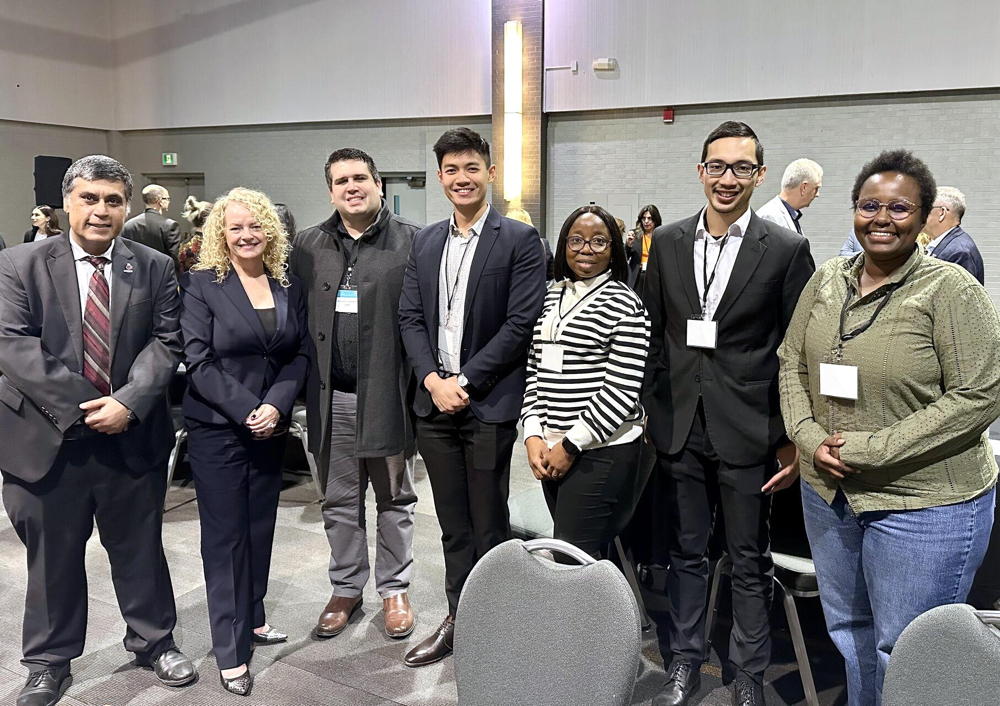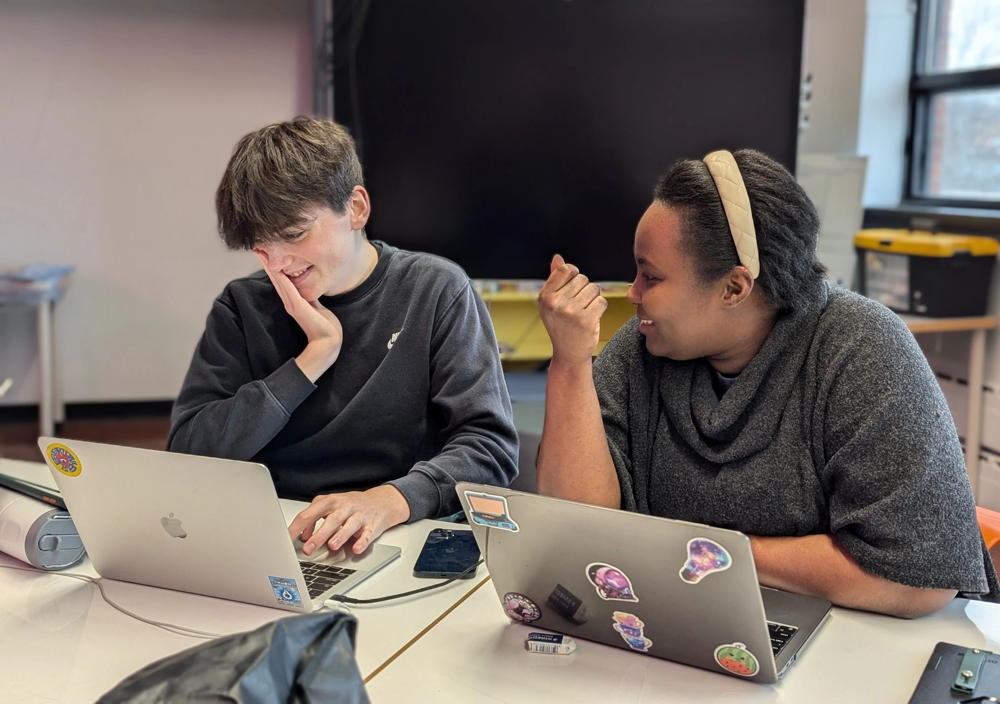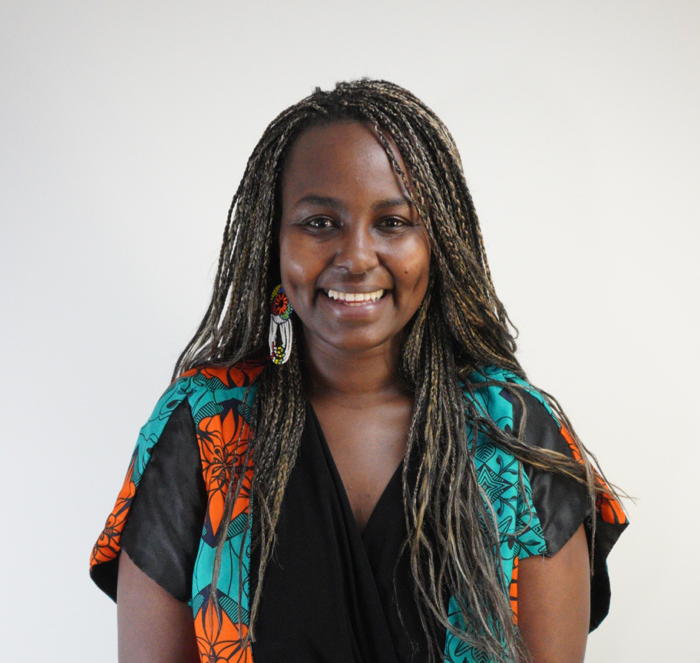This business profile was sponsored by the CGLCC, Canada's 2SLGBQTI+ Chamber of Commerce. A link to the full list is below.
When Naisola Letoya enters a room, it is like a breath of fresh air. She exudes an infectious confidence and joy. The founder of Manyanat Inc. has come a long way, not only metaphorically, but also geographically speaking – from Africa to Moncton in Canada. Naisola’s story offers unique experiences that she has used to build her extraordinary career. In this conversation with her, we learn what it takes to start a successful venture in the post-Covid economy.
The Kenyan native with Maasai roots lived in South Africa until the age of 14 when her family moved back to Nairobi where she also went to university. “I studied international relations with a minor in political science. My mom had always done advocacy work in the NGO world, so I think that is where I saw myself headed as well, or a career in diplomacy.” As she reflects on her upbringing, Naisola talks about the cultural differences in making a living in Africa and Canada. “People in Africa were always hustling. They are very entrepreneurial in that way and it was how I grew up.” Naisola considered herself a solopreneur well before she was 18. She had her own cooking business, preparing and delivering Sunday meals to families in her neighbourhood, and during the week she engaged in after-school activities for children. This gave her insight into operating a small business. Then, ten years ago, she and her mother moved to Canada. “I have always been open about being lesbian, and my mom supported me every step of the way.” Kenya’s highly conservative society holds many negative views of the LGBTIQ* community and expressions of homosexuality are illegal. Under the law, being queer is a felony that carries a sentence of 14 to 21 years imprisonment.
I have always been open about being lesbian, and my mom supported me every step of the way.
After coming to Canada, life changed dramatically for Naisola. She had to redo her higher education. “Now, I majored in media and communications.” She eventually settled into life here, met her partner and enjoyed greater freedoms. But it did not all just fall into place. Naisola tried a variety of different things to adapt to the Canadian way of life. “I am 31 now, and do I know what I want to do? Kind of. Am I doing it? I am getting there.”
Starting my own queer-led business, was the next logical step.
In 2024 Naisola soft-launched her company. Manyanat specializes in marketing solutions for small- and medium-size businesses, via a hands-on approach to help entrepreneurs reach the full potential of their endeavors. Despite being specialists in their field, they may have difficulty reaching their clientele or specific markets. “My niche is specifically where traditional incubators can’t help. Starting or running a business has so many parts to it, that it can be overwhelming. That is where Manyanat steps in. Starting my own, queer-led business, was really the next logical step.”
Introducing tailor-made marketing strategies and processes such as growth hacking is just one example. The focus on rapid business growth uses a wide array of approaches such as data analysis, creative tactics, digital tools and channels, and guided experimentation to recalibrate a business’s measurable success. Manyanat, the name of her company, is rooted in Maasai culture. “Our mud houses are called ‘manyata’. They are not single-family homes. They are impermanent, as the Maasai are semi-nomadic, and developed in a concentric way just like I see my work with the businesses where we emphasize community. So, in my culture, it is usually the women building the mud houses together, using soil and branches from the thorn tree. It is a visual I like to use in my work to help with a shift in a client’s mindset.
We’re growing together in unexpected ways.
We talk about her current projects. “A favorite one at the moment is a Black hair brand called ‘Gáamai Hair’. The founder, Aaliyah Lahai, is also a Black woman, and I am so passionate about it because she’s making ecologically sound products for our community. There are so many hair products out there that are harmful to our health and the environment or that can cause cancer. With this work comes my personal realization that I started loving my hair again. I embrace it and everything that comes with it in my culture. So, it is interesting also on a meta level where we are both helping each other and growing together in unexpected ways.”

Staffing is another important topic, explains Naisola. “In the start-up phase, we noticed many entrepreneurs cannot yet afford staff. The other side of the coin is that immigrants and queer people have a hard time getting jobs.” Finding ways to connect the two is a challenge she would like to tackle. “Retention rates among these groups are low and covert discrimination plays a big part in this.” In her experience, there is a lack of understanding and education around intercultural communication. “Because at the end of the day, a lot of the things can be taught and people’s skills are transferable, but somebody has to mediate when problems arise.” It is a goal of hers to take on such a role and procure staff for start-ups who she has trained and is responsible for. “I have seen it happen many times. When people say, for example, they have an issue with a Black woman, I can tell you what the issue is. If I underperform, I am in trouble. If I overperform, I am also in trouble.”
Naisola has experienced first-hand what it is like being a newcomer to Canada. “Even though I had a degree in higher education, it was impossible for me to find a job. Like many others, I was forced to attend a program where immigrants are being paid to ‘learn’ about Canadian culture and how to better integrate. The facilitators have no grasp on who they are dealing with. For example, they talk about sports that are being played in Canada. Well, these might not be sports that are typically played in immigrant communities. Say there is an architect from Vietnam, or a tailor from China or somebody who worked in logistics. They don’t need to learn about curling. They are bringing valuable experiences and knowledge to the table.”
So how is running a gay-led business in New Brunswick? Naisola chuckles. “Honestly, that’s complicated, especially in Black spaces. For the most part, however, people aren’t bad about it. I think people don’t want to seem unprofessional when they find out that I am gay. It is such an important part of me, my work and what I do. I wouldn’t be authentic hiding it, and I can’t hide my Blackness either. I like to think that my queerness actually makes me better at what I do. Maybe even more so than anything else.”
In our conversation, we go back to the matter of home. “How did Moncton become home”, I ask. “My partner is from Nova Scotia with family ties in New Brunswick, and we wanted to get out of Ottawa during the pandemic in 2021. It also felt fitting when I learned more about Black businesswomen like Georgina Whetsel who made a name for herself at the end of the 18th century as one of the first female millionaires in Atlantic Canada. Strong, brave, resilient – a trailblazer, really. Stories like hers drew me to New Brunswick before I knew that I wanted to live here. Another plus is the natural beauty of this province. I am obsessed with the wide-open skies here. I just love it. Atlantic Canada is diverse in many ways, but also old school when it comes to networking. Through networking here, I have found more gay Black people than in my circle of friends. In this way, Moncton is pretty interesting, but just like everywhere else, there are still ways to go with regards to diversity and acceptance.”

Is New Brunswick especially attractive to the Black community because it is bilingual? For a lot of Black immigrants, particularly from French-speaking African countries like Congo, Chad, Togo or Côte d’Ivoire, this might be a consideration. “Personally, I don’t think so, and I don’t speak French. It’s something I am stubborn about. I had to take it in boarding school, but in my defense, I speak English and I speak Afrikaans which is a form of Dutch spoken in South Africa. While I recognize the value of speaking French in this region, especially in the job market, I find it frustrating that I, as someone whose main language is English, and who had to learn another colonial language as a child, should have to learn yet another colonial language. I could spend my time becoming more fluent in Swahili and Maasai, the languages of my people.”
Having soft-launched her business last year, this year she is going all in. What are her plans for the next twelve months? Naisola beams. “There is so much coming up, and I look forward to meeting new people. I am so grateful. If we speak in a year’s time, this will be a whole different story.” Naisola is optimistic, excited and sure of one thing – the best is yet to come.
This is one of a series of business profiles sponsored by the CGLCC, Canada's 2SLGBQTI+ Chamber of Commerce. Here's the full set - so far.


